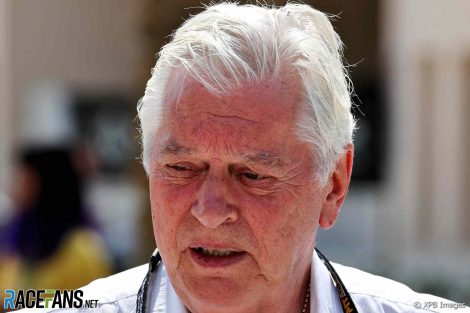Formula 1’s chief technical officer has revealed new details of the biggest overhaul of the series’ regulations in a decade.
The championship will introduce a new engine formula in 2026, its first such change in 12 years. The new power units will generate a greater proportion of their power electrically.
This has prompted concerns they may not be as powerful as the current V6 hybrid turbos and that drivers may suffer excessive turbo lag in power delivery. However F1’s chief technical officer Pat Symonds says these concerns have been addressed.
“They will be, at the moment, cars with electrical power fully delivering 900 horsepower,” he told the official F1 channel. “We’re going to be over 1,000 horsepower with the ’26 car, [we] want more of it coming from the electric motor.
“At the moment turbo lag does not exist on these cars because we have an electric motor on the turbo, that’s going. [But] turbo lag is not what it used to be in the old days.”
The changes to the engine formula will be accompanied by revised chassis regulations. This follows the last major rules update in 2022, which was intended to aid overtaking.
Symonds said there is more work to do in this area, and F1 intends to reduce the weight of the cars, which many drivers have said makes it hard for them to race closely in the current machines.
Advert | Become a RaceFans supporter and
“We do want to reduce the downforce on the car,” said Symonds. “Part of the reason why the cars are so heavy is because they’re having to deal with so much load, so they’ll slide a little bit more.
“I think what it will do is it will put a little bit more emphasis on the driver. That’s an important thing. It’s the drivers who are the heroes, they’re the supermen that we want to promote. So I think things are going in the right direction there.”
Several new power unit manufacturers have already confirmed they will enter F1 in 2026. Audi will enter for the first time while Ford and Honda will return. Cadillac has also said it intends to enter in 2028. Symonds said the key to attracting new entrants has been making F1 more affordable yet also technologically relevant.
“It’s technology at a sensible cost,” he said. “We talk a lot about the the 2022 car and how it’s improved racing and all the things we did. But the budget cap doesn’t really get the medals it deserves because the budget cap is…
Click Here to Read the Full Original Article at RaceFans…

